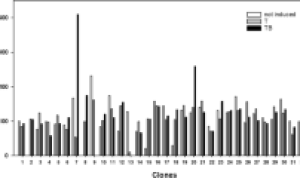Search author on:PubMedGoogle Scholar
You have full access to this article via your institution.
Computer-vision research powers surveillance technology
Computer-vision research powers surveillance technology
AI research on computer vision is almost always used in ways that enable surveillance, according to a newNaturestudy.
Computer vision is what allows driverless cars to navigate, automatic tagging of people's faces on social media, and the detection of cancerous cells, but many people have argued it could also power mass surveillance. The new study trawled through over 40,000 documents to discover that the vast majority of research in computer vision powers surveillance.
Such technology could be used to secure borders and catch criminals, but researchers are concerned that this could impact democratic freedoms by allowing easy identification and tracking of people. The study could help empower those who want to protect people from being surveilled, by highlighting how this research is being conducted and used.
doi: https://doi.org/10.1038/d41586-025-01936-w
Meet the MIT engineer who invented an AI-powered way to restore art
How AI is revealing the language of the birds
Watch this bird-inspired drone leap into the air
ChatGPT has a language problem — but science can fix it
What ChatGPT is and what it's not: a three minute guide
Can AI build a virtual cell? Scientists race to model life’s smallest unit
AI, peer review and the human activity of science
Don’t sleepwalk from computer-vision research into surveillance
Don’t sleepwalk from computer-vision research into surveillance
Wake up call for AI: computer-vision research increasingly used for surveillance
Brain-reading devices raise ethical dilemmas — researchers propose protections
Don’t sleepwalk from computer-vision research into surveillance
Computer-vision research is hiding its role in creating ‘Big Brother’ technologies
Does using ChatGPT change your brain activity? Study sparks debate
Founded in 2018, Westlake University is a new type of non-profit research-oriented university in Hangzhou, China, supported by public a…
The University of Toronto now recruiting for the Eric and Wendy Schmidt AI in Science Postdoctoral Fellowship. Valued at $85,000 CDN per year.
The Integrated Science Lab (IceLab) offers three postdoctoral scholarships that will be affiliated with one of six possible multidisciplinary projects
Aim to a global leader in materials science research society, and create a diverse, innovative, and collaborative research environment
Department of Frontier Materials, Suzhou Laboratory
The Max Planck Institute of Molecular Cell Biology and Genetics (MPI-CBG) in Dresden, Germany, is seeking an outstanding individual to fill the po…
Max Planck Institute of Molecular Cell Biology and Genetics


